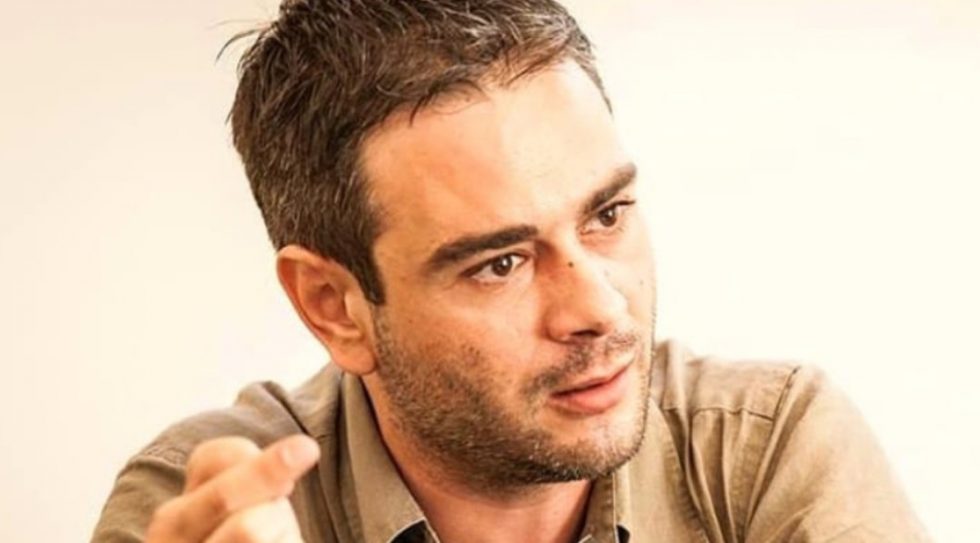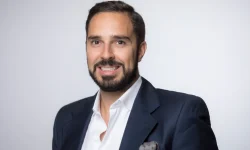
The original version of this article was published in Italian by the same author on 12 April 2025.
“A single person cannot make a pencil. The wood comes from a tree felled in the state of Washington. To fell the tree, it took a saw. To make the saw, it took steel. The graphite in the tip, I think, comes from some mine in South America. The eraser probably comes from Malaysia, the metal band or the yellow paint or the glue that holds it all together, I haven’t the slightest idea where they come from.”
This quote is by Milton Friedman, Nobel Prize laureate in Economics in 1976, founder of monetarism and theorist of neoliberalism that characterized the policies of Ronald Reagan and Margaret Thatcher.

Milton Friedman, awarded the Nobel Prize in Economics in 1976. Photo: Wikimedia Commons.
In the 1980s, Friedman described what he called ‘the magic of the price system’ like this: “Thousands of people collaborated to build this pencil. People who don’t speak the same language, who don’t have the same religion, who might even hate each other if they met. What brought them to work together to make a pencil that you can buy for a few cents? No order from above from some government commissioner. It was the magic of the price system. That’s why the free market is so essential, not only to promote economic efficiency but even more so to foster peace and harmony among the peoples of the Earth.”
But why is it being talked about again today? An old video where Friedman spoke about his theory on the free market was shared on Elon Musk’s X profile to reinforce his opposition to the tariffs of US President Donald Trump.
— Elon Musk (@elonmusk) April 7, 2025
Who was Milton Friedman?
Friedman, born in Brooklyn to a family of Jewish immigrants who came to America from what is now Ukraine, was one of the most important American economists and a Nobel Prize in Economics in 1976.
But he was not only a far-sighted visionary in the field of economics.
Today, perhaps, some would define him as an “influencer” for his great communication skills and the ability to have a strong influence, even on the liberal policies of Margaret Thatcher’s British government and Ronald Reagan’s US government in the 1980s.
His ideas are still extremely relevant today, following the decisions of the American president on economic policy.
In his communication, Friedman used a language alternated between technical and academic features and easier linguistic registers, understandable to everyone. This ability was his great strength.
But what separates him from the language used today by one of the most influential figures of our times, Elon Musk? And what strategies have changed over the years, also in light of the opening of multiple new communication channels?
We discussed the topic with Walter Quattrociocchi, Professor of Informatics at La Sapienza University in Rome who leads the Center of Data Science and Complexity for Society Lab at the same University.

Walter Quattrociocchi, Professor of Informatics at La Sapienza University in Rome who leads the Center of Data Science and Complexity for Society Lab.
Professor, from the video of Friedman to today, roughly 50 years have passed. What has changed in communication with social networks?
In essence, I would say absolutely nothing; the intent of both Friedman and Musk is exactly the same: to entertain those who are watching, reading, or listening to them. What has changed is that today we have access to more technological tools, and therefore we can create much more captivating contents compared to the camera that filmed Friedman while he spoke about his economic theories. If until recently Photoshop was used to edit a photo, today all you need is an app on your smartphone and you’re done. But neither – Friedman nor Musk – intend to spread an absolute truth, but rather to entertain as many users as possible and convince them that what they are saying is the way to go. To popularize any content, you have to go through the logic of entertainment: this type of process implies knowing how to attract more and more public towards your interests.
How has Elon Musk set up his communication?
Musk’s communication tends towards the continuous affirmation of the self, of someone who once felt bullied and today takes part in the tables with the great leaders of the world. In this narrative, he has created a resilient community that shouts for free speech, but it’s all more of a political and social pretext than anything else. I believe that in Musk’s communication, much of what is disseminated is simply the result of improvisation, because I don’t really see a long-term vision in it.

Elon Musk, CEO of SpaceX and Tesla and owner of X. Photo: Wikimedia Commons.
How has the tone and language adopted by Musk changed, if at all, compared to his beginnings?
Musk’s communication has experienced an extremization. When he founded Tesla, he circulated content related to sustainability, the importance of preserving the environment and safeguarding it, then the European Union became almost an enemy for him, in a dynamic that, if you’ll excuse the term, seems almost ‘adolescent.’ If you go back and look at some of his content disseminated online, you’ll notice how his way of spreading messages doesn’t have much connection with real facts, but a great emotional charge emerges, full of symbols, that speaks ‘from the belly to the belly’ of people. I think the tone has always remained the same, but lately it has been extremized.
Can you imagine a Musk without social media?
Honestly, it’s very difficult to imagine Musk without social media. He adores them and I’m convinced he’ll never do without them. He liked the former Twitter, now X, so much that he bought it. And we, without social media, would live in a world made of certainly less discordant voices. No one makes ‘the bustle’ that Musk does, but Trump also gives him support. They both want attention from their followers; theirs is a continuous demand for attention, pushing to create a constant contradiction with those who came before them.
So you believe that Musk didn’t expect the ‘mass exodus’ from X?
I think that on X he believed that everyone who was on Twitter would migrate to the new social network, thus taking the same target, but underestimating, instead, the impact he would have at the helm. I don’t think, therefore, that he expected to witness a general ‘runaway’ also from the media, scientists, and influencers.
In this situation, in your opinion, where will insisting on this type of communication lead us?
To further fragmentation with the polarization of the public debate becoming recursive. We will arrive at a total segmentation whereby people—a symptom they are already experiencing now—no longer have confidence in institutions or even in science. As if we were immersed in a continuous ‘credibility market,’ as if trust were a commodity to be sold. Narratives have a greater impact than the fact itself. To make an example: In Trump‘s social media narrative, he is the greatest negotiator in the world. But let’s ask ourselves if, in fact, he really is. In this period, there has also been talk of ‘sanewashing,’ which would mean minimizing the perceived radical aspects of a person or an idea to make them appear more acceptable to a wider audience. A theme that has risen to prominence in the criticism of Trump’s media practices regarding the US presidential elections.

Donald Trump, 45th e 47th President of the United States of America. Photo: Flickr.
And how is plurality guaranteed in this way?
Every online user today searches for their own reference community. And each social network has its own target, therefore it can be said that plurality is guaranteed by the fact that you can choose between using one platform rather than another, but, clearly, each of these looks to its own profit. Musk has identified in a particular target his community that leads him to generate this profit, therefore he invests in strengthening that specific slice of users.
What communicative differences are there, in your opinion, between Trump and Musk?
I believe that Trump uses a more aggressive tone than Musk in terms of communication, although I believe he is firmly convinced of what he says. Musk, on the other hand, plays a bit of the actor who is performing, and I believe he will soon change route, won over by antagonism to the woke. Personally, I think we could soon witness a break between the two: Musk communicates in an almost schizophrenic way, Trump uses different tones. Some argue that, to put it as quoted in some American newspapers: ‘Musk is doing the ride in the wrong place’… Who knows if one day we will see him on other stages. Meanwhile, on the web, the game gets tough.









